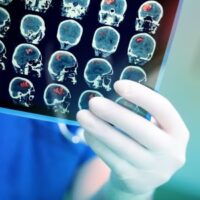Stroke Misdiagnosis: Legal and Medical Perspectives

Stroke misdiagnosis can have devastating consequences for patients, leading to inappropriate treatment, delayed care, and significant complications. Contact your medical professionals concerning common misdiagnoses of strokes, conditions that can be mistaken for strokes, the reliability of MRIs in diagnosing strokes, and the tests used to confirm a stroke diagnosis.
What is a Common Misdiagnosis of a Stroke?
Strokes are commonly misdiagnosed as less severe conditions due to the similarity in symptoms with other neurological disorders. A typical misdiagnosis might involve mistaking a stroke for a migraine, especially when the patient presents with headache and visual disturbances, which are common in both conditions.
Conditions Mistaken for a Stroke
Several conditions can mimic the symptoms of a stroke, leading to misdiagnosis. These include:
- Migraines: Particularly those with aura, which can cause visual disturbances and sensory changes.
- Seizures: Can cause symptoms like altered consciousness and convulsions, similar to some strokes.
- Hypoglycemia: Low blood sugar levels can lead to confusion, weakness, and speech difficulties.
- Brain Tumors: May present with progressive neurological deficits that resemble those seen in stroke patients.
MRI and Stroke Misdiagnosis
While Magnetic Resonance Imaging (MRI) is a highly effective tool for diagnosing strokes, particularly ischemic strokes, it is not foolproof. An MRI might fail to detect a stroke if conducted very early after stroke onset or if the stroke is very small. Additionally, certain types of strokes, such as those involving smaller blood vessels, may not be immediately apparent on an MRI.
To confirm a stroke diagnosis, several key diagnostic tests are commonly used. An MRI is vital for providing detailed brain images and identifying areas affected by a stroke. A CT scan is often the initial test performed in emergencies, capable of detecting hemorrhages or signs of early ischemia. Carotid ultrasounds are used to examine the carotid arteries for narrowing that could lead to ischemic strokes. A cerebral angiogram provides an intricate view of the brain’s blood vessels to identify potential blockages or abnormalities. Additionally, an echocardiogram may be conducted to see if the stroke was caused by blood clots from the heart.
Legal Implications of Stroke Misdiagnosis
Patients who have suffered harm from a stroke misdiagnosis may have grounds for a medical malpractice claim if it can be demonstrated that the misdiagnosis resulted from a deviation from standard medical practice. This could involve failing to perform the appropriate diagnostic tests based on the presented symptoms or misinterpreting the results of those tests. Successful litigation requires proving that the healthcare provider’s negligence directly resulted in harm or worsened the patient’s condition.
Victims of stroke misdiagnosis and their families often face not only health challenges but significant financial burdens due to incorrect or delayed treatment. Seeking experienced legal counsel can help navigate the complex process of filing a medical malpractice lawsuit and securing compensation for medical expenses, lost wages, and pain and suffering.
Contact The Villari Firm
Stroke misdiagnosis remains a significant challenge in medical practice, with potentially life-altering consequences. Understanding the conditions that mimic strokes, the diagnostic processes involved, and the legal avenues available for recourse can empower patients and their families to seek the best possible care and legal redress when errors occur.
If you or a loved one has been affected by a stroke misdiagnosis, the Philadelphia medical malpractice lawyers at Villari Firm is here to help. Our experienced team is dedicated to advocating for your rights and ensuring that you receive the justice and compensation you deserve. Contact us today for a comprehensive review of your case and personalized legal assistance.
Sources:
dovepress.com/diagnostic-challenges-in-outpatient-stroke-stroke-chameleons-and-atypi-peer-reviewed-fulltext-article-NDT
webmd.com/stroke/conditions-that-look-like-stroke
